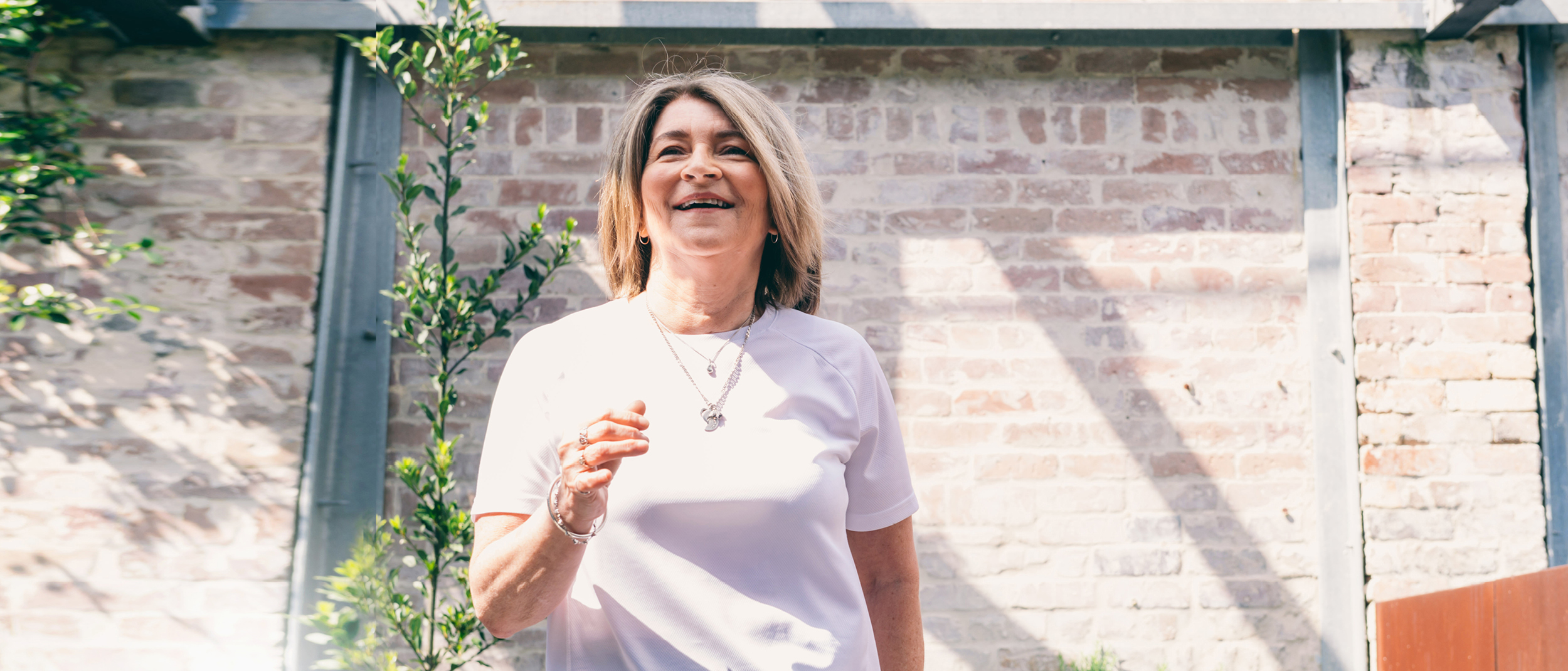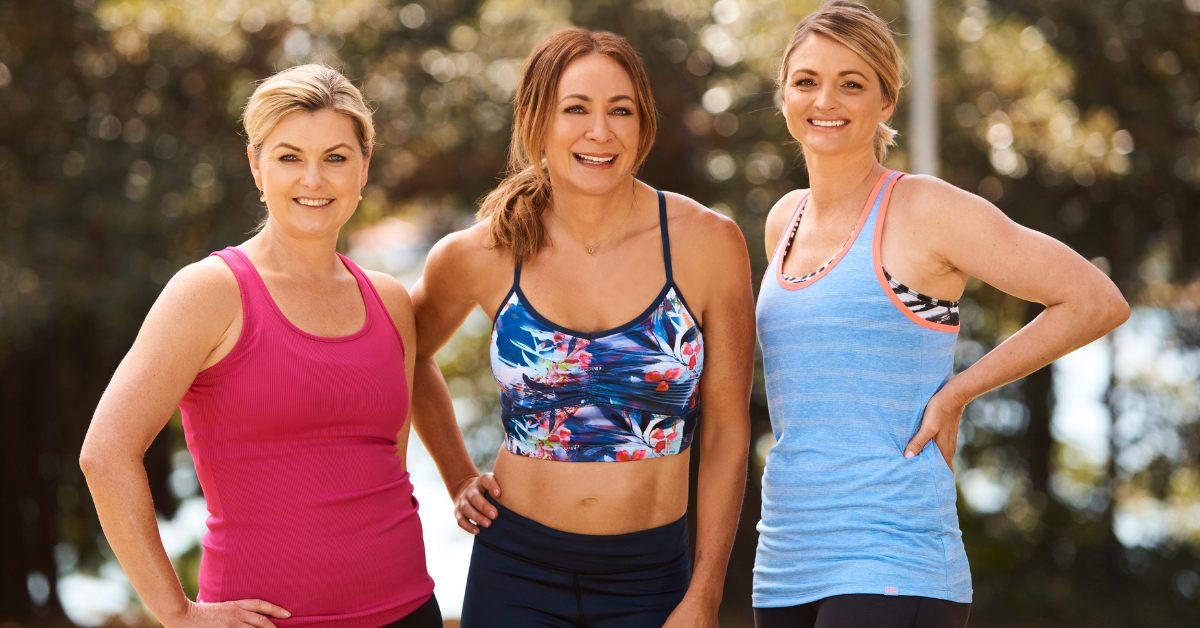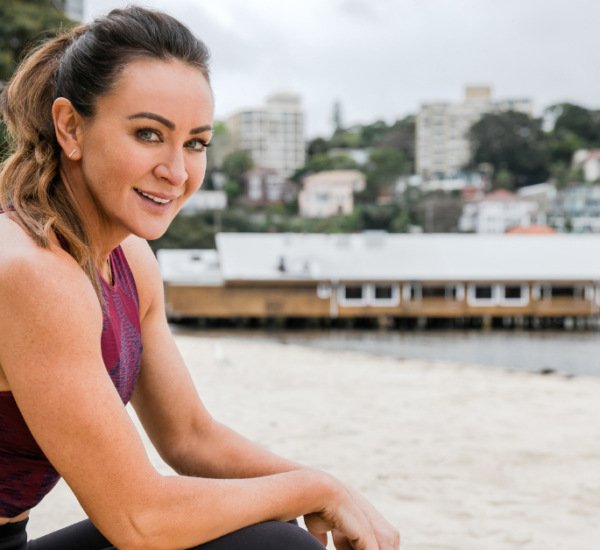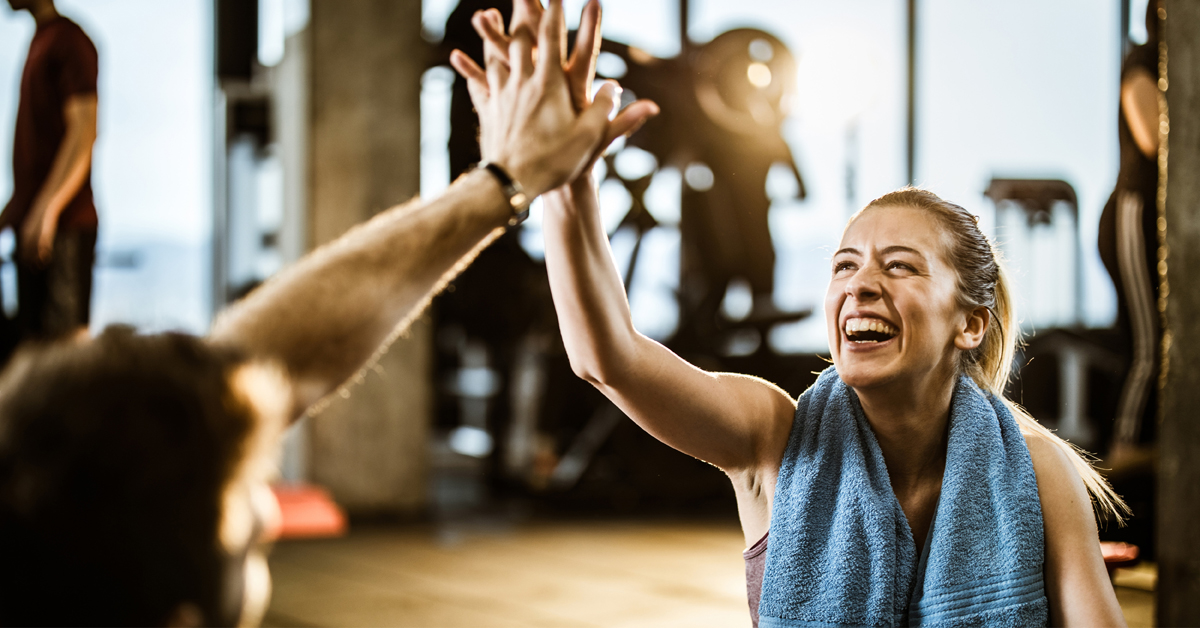Over the past seven years, 12WBTer and mum of three, Louise has worked hard to lose a huge 35 kilos. Louise admits that long term weight loss was very much a ‘two steps forward, one step back’ process for her. But, reaching her goal also culminated in fulfilling a lifelong dream: to run 10 kilometres! “Wearing a size 12 when I used to wear a 22 isn’t so bad either,” Louise laughs.
However, Louise is also experiencing and unexpected down side to her weight loss – a bad case of double vision about how far she’s come and how much her body has changed. “I’m still trying to get my head around the changes; I’m still surprised when I see photos of myself.”
This manifests in other ways too.
“I’ll be at a BBQ and find myself making a fat joke because I used to be the fat person – only to realise I’m being offensive to half the people around me because I no longer look like a person who has the right to make that kind of joke,” says Louise.
“Or, I’ll walk into a shop and not even contemplate trying things on, or head straight for the large or extra-large rack without realising I probably need a medium. It’s a constant re-evaluation of my reality, and while I know logically that I’m skinny for a fat girl, and I’m looking absolutely fantastic for someone who used to be 35kg heavier, I’m still not where I want to be.”
Seeing Double
This ‘double vision’ is a good way of describing body image distortion, says Professor Phillipa Hay, from the Mental Health School of Medicine and Centre for Health Research at the University of Western Sydney. Professor Hay is also the co-editor in chief of the Journal of Eating Disorders.
“Often the rapidity of weight loss can play a part in it occurring – your brain and your neurons are catching up to your new persona, and not as quickly as your body is changing. But, I think it’s common for many people who’ve lost a lot of weight to struggle with it. Small children can readily accept changes in their bodies – say, if they suffer severe burns – because they’re in the process of laying down those images and views of themselves. But when you’re an adult your view of yourself is very much ingrained, and it can be difficult to reconcile changes with who you are as a person, because the person you think you are is very much also tied in to the body that you have,” she explains.“It can be a distressing and confusing experience for people.”
Weight loss in itself is a major life change, much like getting married or migrating to another country, and we need time to adjust, she adds. “We did a small study on people after bariatric surgery and many said they just weren’t prepared for the stress of the life adjustment after the weight loss. While for many people losing weight is a positive thing, you still have to integrate the changes in your own body image and your perception of self on all levels.”
What Role Do Other People Play In Your Body Image Distortion?
It may also come as a shock to find out how other people relate to you after you lose weight. “When people are heavy there’s a stigma, and a difference in interpersonal encounters,” says Professor Hay, “which is quite different to the way people relate to you when you’re thin. So that can be a major psychological adjustment too.”
Louise agrees, and says she’s been quite surprised at the number of people who’ve noticed her weight loss and told her not to lose any more weight.
“Those kinds of comments feed into what’s happening for me internally,” she adds. “My goal now though is to get into the middle of my healthy weight range – I’m at the top end of it right now. Just the idea of hitting a healthy weight range was the ultimate for me, I though I’d never get there. I’m also conscious that some people are never happy no matter where they get to and that’s a risk. So it’s absolutely about fixing how you feel about yourself as well as your body – actively working on that.”
Beating Negative Thoughts
Positive self talk is a biggie; it’ll help your mind adjust to your new physical reality. Doing things you couldn’t before is also key. “Get to know your new body, buy clothes, do a dance class or something that was really difficult for you before,” suggests Professor Hay. “All those things can help you adjust.”
Louise’s strategy is to give herself time, and learn to appreciate what her body can now do as opposed to how it looks.
“Looking good is great of course, but for me it’s about feeling better” she says. “The other day, a friend said to me, ‘I’m struggling to walk up the stairs. I’m puffing’ and I realised, yeah. I remember those days. So, what’s worked for me is gaining a sense of belief and confidence in my body. I mean, I can run 10km! That’s a huge achievement. I’m strong, I’m fit, and I’m healthy… It’s a different way of appreciating yourself.”
Having a healthy mindset is key to achieving a healthy lifestyle, 12WBT gives you the skills to gain confidence and achieve your best body for life. Register your interest today.















I’ve had a hard time explaining this to everyone in my life. They keep telling me it’s a self esteem issue and it’s really not, not for me. Thank you for putting this in a way that I can use to explain to those who haven’t gone through this. — I’ve migrated to another country, 6 months later got married and now I’ve lost about 60lbs+, so I’ve lived (am living) 3 major life changes all at once. It’s a lot to adjust to all at once and it’s scary.
Wow Kendall – talk about major upheaval! No wonder you’re feeling a little fragile – that’s a lot to deal with at once! First off – be kind to yourself – now that you know you are not alone in how you are feeling, allow yourself to pause and catch your breath. Acceptance of your new life, body and surroundings can take time, so don’t feel you need to rush in and get control over all these areas at once. If, with time, you feel you are no closer to accepting your new reality, then counselling may be a solution for you. Some 12WBT members have said that this is what helped them finally accept their big life changes, and if it means you can relax enough to enjoy your new body, marriage and home as you deserve to, I say give it a go! All the best x
Cheers, Chooky 🙂
12WBT Support Crew
Wow im so glad i read that article,i rhought it was just me who felt like that. I know i have lost alot of weight and cms and i know i can fit into a size 9 jeans and i know i am fit strong and becoming more leaner all the time but my mind sees me a whole lot diffrrently..i dont see nor feel the way i look..i still seem to have alot of body issues that i thought would have passed by now…. after reading the article i feel better knowing thats its a brain catch up thing. Onwards and upwards for me 🙂
Love it. Even after being size 12 now since January, when I go into Target I still head straight for the MODA section. Nothing there fits me anymore. I look at my clothes and cant believe how such small things can fit. Two steps back can be driven by fear of success.
Can totally relate! x